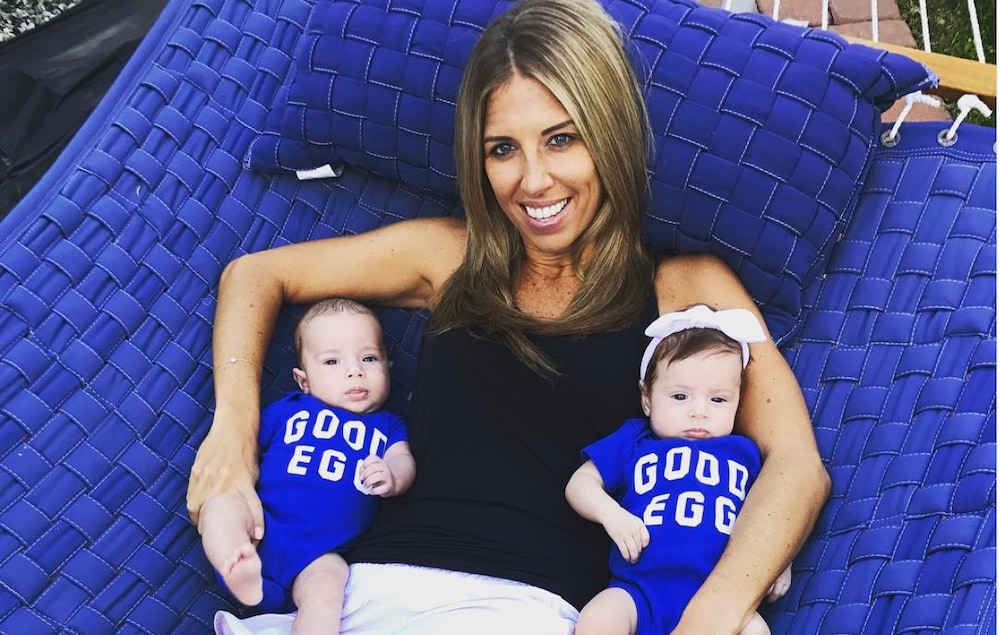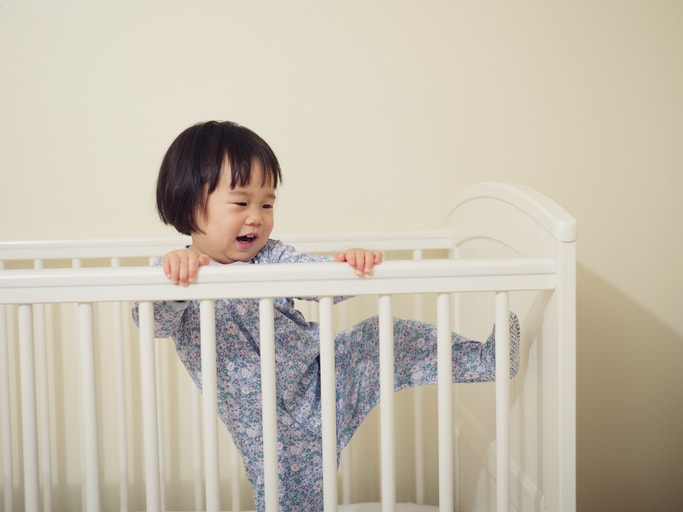Best known for anchoring ESPN’s SportsCenter program, Sara Walsh is now making headlines with her new title: Mom.
A viral Instagram post sees the 39-year-old sports media personality relaxed on a blue hammock, her arms around her twins and each of them wearing onesies with the words “Good Egg” printed on the front. In the caption, she describes the poignancy of the words on those onesies, which were a gift from her mother.
“Finding a good egg didn’t come easy for me, and I suspect there are many people out there facing the same struggle,” Walsh writes. And she’s right: about one in eight U.S. couples experience infertility.
Walsh goes on to share a story that is at once surreal and so real. Here, she shares the story of having a miscarriage while hosting SportsCenter on the road in Tuscaloosa, Alabama.
“The juxtaposition of college kids going nuts behind our set, while I was losing a baby on it, was surreal. I was scared, nobody knew I was pregnant, so I did the show while having a miscarriage. On television. My husband had to watch this unfold from a thousand miles away, texting me hospital options during commercial breaks.”
On set in Alabama would be the first of three failed pregnancies for Walsh. More than once, she wrote, she’d had surgery one day and anchoring SportsCenter the next. She didn’t want to draw attention to her situation.
Sounds like a bad dream. But this is the difficult reality many families face.
“Research has shown the stress levels of women diagnosed with infertility are equivalent to those with cancer, AIDS, or heart disease,” says the executive summary of a new report on the State of Infertility in the Workplace. “Yet many struggle silently, especially in the workplace.”
The new report Come Recommended surveyed 1,000 women and men who’ve been diagnosed with infertility and work in the United States. The research found about half of respondents (52.9 percent) were open about their infertility at work, while 47.1 percent were not.
In Walsh’s case, she and husband Matt Buschmann, a former MLB pitcher, “went down the IVF road” and ultimately were only able to salvage two eggs.
“I refused to even use them for a long time, because I couldn’t bear the idea of all hope being gone,” Walsh wrote in the post. “I blew off pregnancy tests, scared to know if it worked.”
And when it did, they kept the news quiet. No announcement, no shopping spree in preparation for the arrival of the twins. “I wasn’t sure they’d show up,” Walsh wrote.
A Role for Employers?
Because of the prevalence of experiences like Walsh’s, family care benefits are becoming more common. Come Recommended suggests paid medical leave, flexibility and access to fertility services as some of the non-insurance benefits employees appreciate.
Roughly a quarter of large employers (more than 500 employees) offer fertility services as part of their healthcare benefits, according to the International Foundation of Employee Benefits Plans. The most common are in vitro fertilization treatments (19 percent), followed by fertility medications (12 percent) and non-IFV treatments (9 percent). Only 4 percent of companies with fewer than 50 employees offer fertility services.
Companies like Apple, Facebook and Zynga have offered benefits of up to $20,000 to cover egg freezing for female employees. This piece from Employee Benefit Advisor shares the story of a technical account manager at cloud computing company Rackspace, who had trouble conceiving and her employer covered the cost of medication, four IUI procedures and $10,000 toward IVF.
“Rackspace was absolutely incredible,” the employee told EBA. “My schedule was very flexible, and when I had two miscarriages, they never pushed me to come back to work before I was ready. I have a lot of friends who had to keep their infertility experience private because they are afraid if they talk about it they will hurt their careers.”
The Come Recommended survey found employees who do not feel supported by their employers are likely to quit their jobs, actively look for new opportunities or stay and remain unhappy.
As for Walsh, who joined ESPN in 2010, she was included in a recent round of layoffs at the “Worldwide Leader.”





